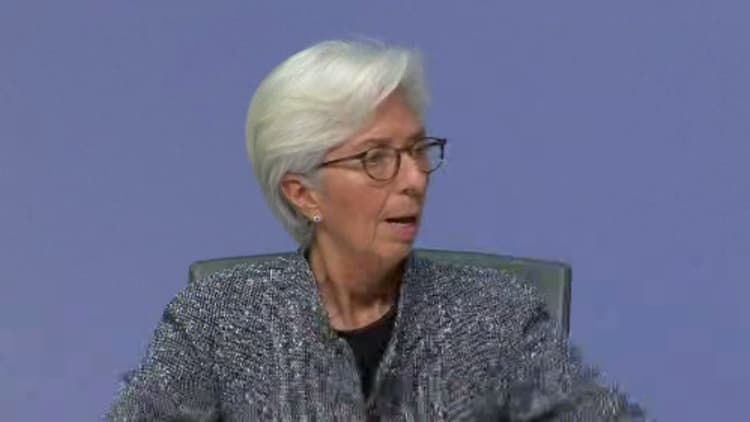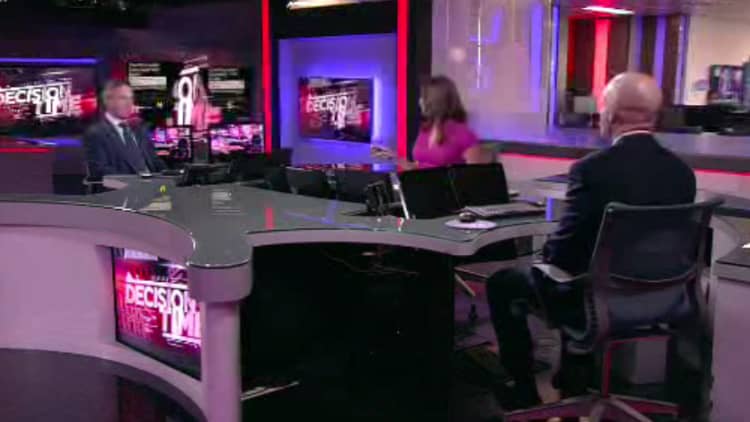
The European Central Bank decided Thursday not to cut interest rates, despite market expectations for a reduction amid the ongoing coronavirus outbreak.
However, the central bank did announce measures to support bank lending and expanded its asset purchase program by 120 billion euros ($135.28 billion).
Market participants were expecting a rate cut of 10 basis points as a way to stimulate the euro economy amid fears that a recession is about to hit the region. Both the Federal Reserve and the Bank of England cut rates over the last week as ways to support their respective economies.
"Contrary to expectations, the ECB did not cut its deposit rate more deeply into negative territory. Instead, the ECB will buy more assets with a focus on private sector bonds and inject even more liquidity at even more favourable terms into the banking system," Holger Schmieding, economist at Berenberg, said in an email.
The ECB's main rate stands at -0.5%. The negative rate is meant to spur banks to loan money rather than park it at the central bank. Experts have argued that in comparison with other central banks, the ECB's toolkit is more constrained given that its rates are in negative territory.
The coronavirus, which began in China at the end of 2019, has spread worldwide. There are more than 127,000 confirmed cases globally, according to data from Johns Hopkins University. Italy, one of the biggest economies in the euro area, has the highest number of cases outside China and has implemented a nationwide lockdown.
Speaking at a press conference, Lagarde said Thursday that the "spread of the coronavirus covid-19 has been a major shock to the growth prospects of the global economy and the euro areas economy and it has heightened market volatility."

Borrowing from the ECB gets cheaper
ECB President Christine Lagarde said earlier this month that the bank was "ready to take appropriate and targeted measures" to deal with the economic impact from the virus.
As such, the ECB also decided to boost lending to banks.
On Thursday, the ECB said European banks would be able to borrow money with an interest rate of -0.75%. This is meant to incentivize banks to lend money from the central bank and lend it to businesses and people.
This "is a powerful move by the ECB. It is paying banks to borrowing from the ECB and, in turn, encouraging banks to pay businesses to borrowing from them– essentially offering banks the option of indulging in a kind of carry trade," Seema Shah, chief strategist at Principal Global Investors, said in an email.
"The ECB has played its part, now it's time for the governments," she added.
Time for government action
The ECB is responsible for monetary policy in 19 European economies. However, each nation decides what to do in terms of fiscal policy.
Speaking at a press conference, Lagarde said that: "Governments and all other policy institutions are called upon to take timely and targeted actions to address the public health challenge of containing the spread of the coronavirus and mitigate the economic impact."


